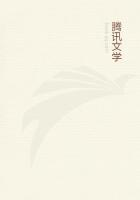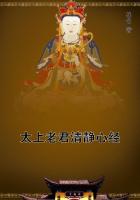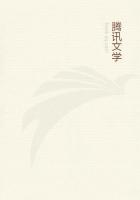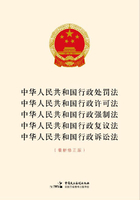I should consider it great presumption to intrude upon the public anything respecting myself, were there any other way of establishing the authenticity of the facts and papers I am about to present. To the history of my own peculiar situation, amid the great events I record, which made me the depositary of information and documents so important, Iproceed, therefore, though reluctantly, without further preamble.
I was for many years in the confidential service of the Princesse de Lamballe, and the most important materials which form my history have been derived not only from the conversations, but the private papers of my lamented patroness. It remains for me to show how I became acquainted with Her Highness, and by what means the papers I allude to came into my possession.
Though, from my birth, and the rank of those who were the cause of it (had it not been from political motives kept from my knowledge), in point of interest I ought to have been very independent, I was indebted for my resources in early life to His Grace the late Duke of Norfolk and Lady Mary Duncan. By them I was placed for education in the Irish Convent, Rue du Bacq, Faubourg St. Germain, at Paris, where the immortal Sacchini, the instructor of the Queen, gave me lessons in music. Pleased with my progress, the celebrated composer, when one day teaching Marie Antoinette, so highly overrated to that illustrious lady my infant natural talents and acquired science in his art, in the presence of her very shadow, the Princesse de Lamballe, as to excite in Her Majesty an eager desire for the opportunity of hearing me, which the Princess volunteered to obtain by going herself to the convent next morning with Sacchini. It was enjoined upon the composer, as I afterwards learned, that he was neither to apprise me who Her Highness was, nor to what motive I was indebted for her visit. To this Sacchini readily agreed, adding, after disclosing to them my connections and situation, "Your Majesty will be, perhaps, still more surprised, when I, as an Italian, and her German master, who is a German, declare that she speaks both these languages like a native, though born in England; and is as well disposed to the Catholic faith, and as well versed in it, as if she had been a member of that Church all her life.
This last observation decided my future good fortune: there was no interest in the minds of the Queen and Princess paramount to that of ****** proselytes to their creed.
The Princess, faithful to her promise, accompanied Sacchini. Whether it was chance, ability, or good fortune, let me not attempt to conjecture;but from that moment I became the protege of this ever-regretted angel.
Political circumstances presently facilitated her introduction of me to the Queen. My combining a readiness in the Italian and German languages, with my knowledge of English and French, greatly promoted my power of being useful at that crisis, which, with some claims to their confidence of a higher order, made this august, lamented, injured pair more like mothers to me than mistresses, till we were parted by their murder.
The circumstances I have just mentioned show that to mere curiosity, the characteristic passion of our *** and so often its ruin, I am to ascribe the introduction, which was only prevented by events unparalleled in history from proving the most fortunate in my life as it is the most cherished in my recollection.
It will be seen, in the course of the following pages, how often I was employed on confidential missions, frequently by myself, and, in some instances, as the attendant of the Princess. The nature of my situation, the trust reposed in me, the commissions with which I was honoured, and the affecting charges of which I was the bearer, flattered my pride and determined me to make myself an exception to the rule that "no woman can keep a secret." Few ever knew exactly where I was, what I was doing, and much less the importance of my occupation. I had passed from England to France, made two journeys to Italy and Germany, three to the Archduchess Maria Christiana, Governess of the Low Countries, and returned back to France, before any of my friends in England were aware of my retreat, or of my ever having accompanied the Princess. Though my letters were written and dated at Paris, they were all forwarded to England by way of Holland or Germany, that no clue should be given for annoyances from idle curiosity. It is to this discreetness, to this inviolable secrecy, firmness, and fidelity, which I so early in life displayed to the august personages who stood in need of such a person, that I owe the unlimited confidence of my illustrious benefactress, through which I was furnished with the valuable materials I am now submitting to the public.
I was repeatedly a witness, by the side of the Princesse de Lamballe, of the appalling scenes of the bonnet rouge, of murders a la lanterne, and of numberless insults to the unfortunate Royal Family of Louis XVI., when the Queen was generally selected as the most marked victim of malicious indignity. Having had the honour of so often beholding this much injured Queen, and never without remarking how amiable in her manners, how condescendingly kind in her deportment towards every one about her, how charitably generous, and withal, how beautiful she was,--I looked upon her as a model of perfection. But when I found the public feeling so much at variance with my own, the difference became utterly unaccountable. I longed for some explanation of the mystery. One day Iwas insulted in the Tuileries, because I had alighted from my horse to walk there without wearing the national ribbon. On this I met the Princess: the conversation which grew out of my adventure emboldened me to question her on a theme to me inexplicable.
"What," asked I, "can it be which makes the people so outrageous against the Queen?"Her Highness condescended to reply in the complimentary terms which I am about to relate, but without answering my question.















